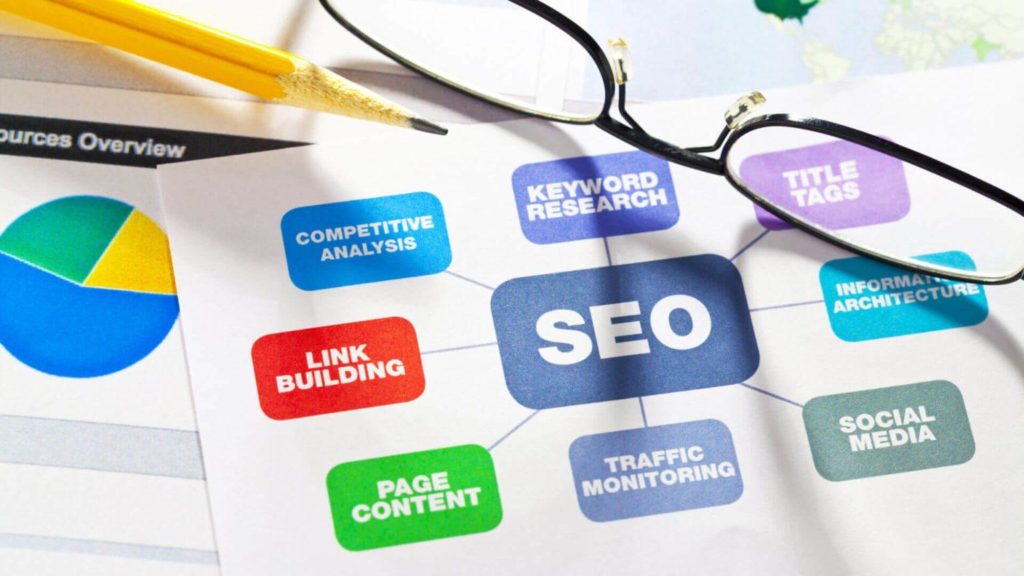On-Page SEO VS Off-Page SEO EXPLAINED
On-Page SEO vs. Off-Page SEO: What’s the Difference? In today’s digital landscape, mastering the art of search engine optimization is crucial for businesses to attract new customers. This article will delve into on-page SEO and off-page SEO, exploring their power and highlighting the distinctions between the two strategies. Search engine optimization is about optimizing your website to rank higher in search engine results pages (SERPs). Although there are various techniques and strategies involved, they can be broadly categorized into two types: on-page SEO and off-page SEO. What is On-Page SEO? On-page SEO, also known as on-site SEO, is a technique that involves optimizing individual web pages to improve their visibility and rankings on search engines. It focuses on factors that occur within a webpage and are under your control. On-page SEO is essential for website optimization and plays a significant role in determining search engine results. When it comes to on-page SEO, several key elements contribute to its success. These include providing high-quality content, optimizing page titles and meta descriptions, enhancing the overall user experience, and optimizing various technical aspects of the webpage. On-page SEO ensures that your website’s content is easily crawled, indexed, and understood by search engines while providing a delightful experience for users who visit your site. Some crucial factors that impact on-page SEO include core web vitals, page speed, mobile friendliness, title tags, meta descriptions, content quality, HTML headers, image alt text, internal linking, and navigation. By focusing on these factors, you can improve your website’s visibility and rankings on search engine results pages, attracting more relevant traffic. What is Off-Page SEO? Off-page SEO refers to the collection of strategies and efforts undertaken outside of a website to enhance its search engine rankings and online visibility. Unlike On-Page SEO, which focuses on optimizing factors within a webpage, Off-Page SEO looks at external factors that influence a website’s reputation and authority. One of the key components of Off-Page SEO is link building. Backlinks are an essential part of Off-Page SEO, as they indicate to search engines that other websites find your content valuable and trustworthy. Building high-quality backlinks from reputable websites can significantly improve your website’s ranking and visibility in search engines. In addition to link building, other Off-Page SEO techniques include social media engagement, guest blogging, and online mentions. By leveraging these techniques, you can increase your website’s exposure and attract more traffic from various online platforms. Off-page SEO is crucial to establishing your website’s credibility and authority in the online landscape. By implementing effective Off-Page SEO strategies, you can improve your website’s search engine rankings, increase organic traffic, and drive more conversions and revenue for your business. Importance of On-Page and Off-Page SEO On-page and off-page SEO play a crucial role in improving a website’s visibility, attracting relevant traffic, and achieving higher rankings on engine results pages of research. While On-Page SEO focuses on optimizing content and technical aspects of a website, Off-Page SEO involves building external factors such as backlinks and social media presence. On-page SEO is essential because it ensures your website’s content is relevant, informative, and easily accessible to users and search engines. By optimizing factors like page speed, mobile friendliness, and content quality, you can create a positive user experience and increase your chances of ranking higher in search results. Off-page SEO, on the other hand, helps establish your website’s authority and credibility in the online space. By building high-quality backlinks from reputable websites, engaging with social media platforms, and improving your online reputation, you can signal to search engines that your website is trustworthy and deserving of a higher rank. On-Page SEO Factors Several factors can influence the effectiveness of on-page SEO, ranging from core web vitals and page speed to mobile friendliness and content quality. Core Web Vitals Core Web Vitals are a set of real-world metrics that measure a website’s user experience. They include dimensions such as visual stability, interactivity, and load time. By improving these metrics, you can enhance your website’s user experience and signal to search engines that your site provides a positive user experience. Page Speed Page speed is an essential on-page SEO factor. Google tends to rank faster-loading pages higher in search results, as faster pages provide a better user experience. To improve page speed, you can optimize elements such as images, JavaScript files, caching, and compression. Mobile Friendliness In today’s mobile age, maintaining a mobile-friendly website is essential for effective on-page SEO. Mobile-friendly pages adjust to fit any device’s screen and provide a seamless user experience. They prioritize responsive design, simple navigation, and fast page speeds, ensuring users can access and navigate your site effortlessly on mobile devices. Title Tags and Meta Descriptions Title tags and meta descriptions are HTML tags that impact on-page SEO by providing information about the page’s content. Title tags define the title of the page, while meta descriptions describe what the page is about. Optimizing these tags with relevant keywords helps search engines understand the page’s relevance to a user’s query and increase click-through rates from search results. Content Quality Content quality is a vital aspect of on-page SEO. Search engines evaluate content based on its usefulness, readability, uniqueness, and relevance to user queries. Creating high-quality content that answers users’ questions and provides valuable information improves your chances of ranking higher in search results. You might also like: Steps to Create a Content Strategy That Gets Results. HTML Headers, Image Alt Text, Internal Linking HTML headers, image alt text, internal linking, and navigation are additional factors that impact on-page SEO. HTML headers help organize and structure content, improving readability for both users and search engines. Image alt text provides relevant information about images, aiding in image searches and overall SEO. Internal linking helps users find related content and assists search engines in discovering new content. Effective navigation ensures that all users can easily access and consume the content on your website. Off-Page SEO Factors Off-page SEO is influenced by various factors that play an important role in
On-Page SEO VS Off-Page SEO EXPLAINED Read More »



